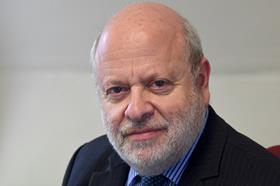At times of stress, people wake up in the night in panic at how much needs to be done. Where to start? We will be crushed under the weight – help!

The legal profession is in that state at the moment. It is 3 am, we are unable to sleep, tossing and turning, scrolling in our mind through the list of significant (sometimes existential) issues we face. We have learned to live with some of them long-term, like the ever-increasing burden of regulation, unsustainably low legal aid reimbursement levels, and accusations of being lefty lawyers. But now there are more, every day more … tumbling out here in no particular order:
- The Daily Mail recently reported that two AI entities negotiated between themselves a non-disclosure agreement without any human intervention (other than the human signatures at the end to seal the deal); this brings the challenge of unregulated AI intervention into legal services closer and closer;
- The recent king’s speech listed several bills for tougher sentences and greater police powers (compelling defendants to attend court hearings, strengthening criminal action against the sharing of intimate images, tougher centres for those committing the most heinous of crimes) - but the government is acting like a mad general at the end of a losing war, calling up phantom platoons, since the prisons are full, the courts are crumbling, the delays are growing, and the legal professionals to support the system are fleeing;
- The Solicitors Regulation Authority is reported to be mulling a substantial levy on the profession over the Axiom Ince saga; some question its own role in allowing the situation to develop as it did; and yet, at the same time, it is saying that it might nevertheless extend its role by taking over regulation of another group of providers (CILEX) who are fighting among themselves over whether they want to be taken over at all – what is happening at our regulator?
- A new front has opened up in lawyers’ role in fighting against climate change, with the publication of an excellent white paper by Law Society Council member, Matthew Gingell, on ‘Measuring ‘Advised Emissions’, which provides a framework for assessing the carbon footprint of a law firm’s advice to clients – in other words, how do we measure the impact on the climate of the advice we provide to our client? This has been discussed for some time as a likely eventuality, and will doubtless become a live policy issue in the near future; so the sooner we prepare for it, the better;
- Over the last few days, the Financial Times has again raised the profession’s alleged role in silencing proper criticism of public figures; this time it is over Baroness Mone’s role with her husband in supplying allegedly faulty PPE equipment to the government; the FT received threatening correspondence in the past from a law firm denying any involvement by the Baroness and her husband in the company concerned, only for the couple now to admit that they had had some involvement – the resolution of the conflict between client’s interest and public interest is not going away, and will continue to torment us.
Of course, this is not happening in a vacuum. The world beyond is in a worse and unbearable state, which can only be endured (by me at any rate) by shutting it out: vicious wars in Ukraine and Gaza for a start. But they are not our direct problem as lawyers. We should concentrate on our own list.
The Law Society is trying to deal with the issues, even though they often do not sit comfortably with its existing committee structure that has served it so well for so long. So the Law Society has launched two long campaigns: one to look at what civil justice should look like in the 21st century, with a recently published green paper on which it is seeking comment; and the other to look at professional ethics over three years, specifically to support members to balance their obligations to clients and wider society, with a useful ethics hub thrown in. This will deal with some of the toss-and-turn matters.
At the same time, it has set up a SLAPPs working group, an AI working group, a climate change working group. And it is obviously grappling determinedly with the Axiom Ince and CILEX fall-out, to the extent that its role as the representative body (and not the regulator) allows it.
Stop! Listing the problems all over again increases the stress!
The best cure is to tell ourselves that everything is manageable. Things look worse at night, and lack of sleep will not help us. As soon as it is daylight, the world will still be turning, and we will get down to work, tackling one thing calmly at a time.
Jonathan Goldsmith is Law Society Council member for EU & International, chair of the Law Society’s Policy & Regulatory Affairs Committee and a member of its board. All views expressed are personal and are not made in his capacity as a Law Society Council member, nor on behalf of the Law Society
































5 Readers' comments